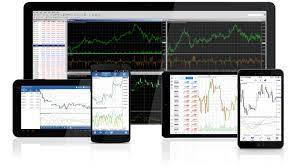
CFD Brokers That Offer Negative Balance Protection
Negative balance protection has become an important feature for traders engaging in Contract for Difference (CFD) trading. This safeguard ensures that traders cannot lose more money than they have in their trading account—a critical consideration given the volatile nature of cfd broker. With the rise of retail participation in CFD markets, many brokers now provide this feature to protect and attract traders. But which brokers offer negative balance protection, and why should it matter to you? This blog will break it down.
What Is Negative Balance Protection?
When trading with leverage, as is common in CFDs, traders can amplify their positions by borrowing funds from their broker. While this opens opportunities for significant profits, it also increases the risk of losses. Unchecked, these losses can exceed the initial deposit in highly volatile conditions.
Negative balance protection ensures that, no matter how extreme the market conditions, traders’ accounts cannot fall below a zero balance. Essentially, this feature acts as a safety net to prevent traders from plunging into debt due to unpredictable market swings.
Why Is Negative Balance Protection Important?
The unpredictable nature of CFD trading markets makes risk management a core concern for traders. Without negative balance protection, a sudden market move, such as a sharp decline during economic announcements or geopolitical events, might result in uncontrollable losses. This could not only deplete an account but leave the trader liable for debts to the broker.
From a trader’s standpoint, choosing a broker that includes negative balance protection ensures peace of mind. It allows traders, particularly those new to CFDs, to focus more on trading strategies without constantly losing sleep over the possibility of catastrophic losses.
For brokers, providing this protection is equally advantageous. It minimizes disputes with clients over excessive account deficits and builds trust, which is crucial in retaining traders and maintaining transparency.
CFD Brokers That Offer Negative Balance Protection
Here are some top CFD brokers that stand out for their commitment to trader protection through negative balance policies.
1. eToro
Highly popular among beginners and social traders, eToro offers an intuitive trading platform and negative balance protection as part of its base features. Licensed by multiple regulatory authorities, including the FCA (UK) and ASIC (Australia), eToro’s strong emphasis on trader security makes it a favorite choice for retail investors globally.
2. Plus500
Plus500 is another broker offering negative balance protection to retail traders by default. With a user-friendly platform and access to a wide range of CFD tools, Plus500 is well-suited for mid-level traders. It is regulated by leading agencies like the FCA and CySEC, ensuring its compliance with safeguarding standards.
3. IG Markets
With decades of experience in the industry, IG Markets is a pioneer in offering negative balance protection. It provides this service in accordance with ESMA guidelines applicable to EU traders. Its in-depth educational resources and robust trading tools also make it a go-to broker for professionals.
4. XM
XM, known for its client-centric approach, offers negative balance protection to all its accounts. It has a reputation for fast execution and is trusted by traders in over 190 countries. The platform is particularly enticing for newer traders due to its focus on education and accessibility.
5. FXTM
FXTM offers negative balance protection as part of its service for retail accounts. With tight spreads and beginner-friendly account options, FXTM ensures its clients have the right tools to manage their risk effectively.
Final Thoughts
CFD trading offers exciting opportunities, but it comes with its fair share of risks. Negative balance protection acts as a critical safety net, helping traders shield themselves from substantial financial losses. When choosing a CFD broker, this feature should be non-negotiable—especially for newer traders or those exploring leveraged trading. Brokers like eToro, Plus500, and IG Markets are paving the way by making this a standard offering. Remember, the key to successful trading lies not just in pursuing profitable opportunities but also in managing risk effectively!